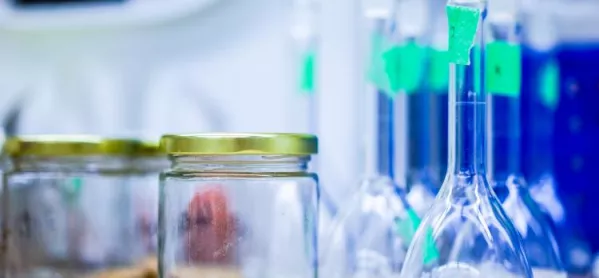Changes to stop practical experiments counting towards tomorrow’s A-level science grades could damage students’ motivation and put them off applying to study it at university, a leading charity has warned.
Speaking ahead of A-level results day, the Wellcome Trust said the decision by Ofqual to stop practicals contributing towards grades could reduce the qualification’s effectiveness in reflecting pupils’ science ability.
For the first time this year, science A levels have had their practicals assessed by a new “endorsement”.
Instead of experiments counting towards grades as in the past, students will be awarded a “pass” if they have demonstrated competency during their course in relation to 12 practical activities.
Crucially, this practical endorsement will not contribute to students’ final A level grade or to their UCAS points.
However, 15 per cent of the total marks in the written exams will be dedicated to questions about the theory and application of practical skills.
Ofqual introduced the change because it had concerns about coursework cheating and over-generous marking by teachers.
Difficult decisions for students
Hilary Leevers, head of education and learning at the Wellcome Trust, said breaking the link between experiments and grades could cause students to focus exclusively on the assessed aspects of their course, reducing their motivation for practical work.
“Practical, hands-on experimental work, really, for us is the heart of science,” she told Tes. “It’s possible that students may be less motivated to fully engage with the practical work.”
Hard-pressed teachers could also end up neglecting experiments, she suggested.
“In a time when we know there’s a lot of pressure on the delivery of science, it may be that teachers are less able to prioritise the delivery of practical science - even though they may very much want to do so.”
Dr Leevers said downgrading the significance of practicals at A level could make it more difficult for students to decide whether they wanted to go on to pursue science at university.
“When you’re thinking ‘Am I good at physics, is this something I want to go on to do?’, if you’re not thinking about the experimental work, it could be quite misleading about whether that’s a subject you want to go on to study.”
Survey findings
A survey of 14- to 18-year-olds by the Wellcome Trust found that 35 per cent were encouraged to learn science because of the practical work.
Stripping out marked practicals could also challenge the “authenticity of the grade of the A level and whether it’s really reflecting how good you are at doing science,” she said.
Given the importance of practical experiments to the scientific process, the Wellcome Trust believes that passing the endorsement should be a requirement for those who want to study science at university.
Dr Leevers said the charity had discovered “quite a lot of inconsistency” when it analysed university course requirements.
“We really feel that, if you are asking people to pass a science A level as part of their progression to university, it should include passing the practical endorsement.”
“From our sampling, there seems to be quite a lot of inconsistency as to whether or not the practical part is referred to or required, and actually there’s also some inconsistency within university websites.”
An Ofqual spokesman said: “We note the comments from Dr Leevers at the Wellcome Trust, and we welcome all contributions on the new practical science arrangements.
“Ofqual has conducted its own initial research into the views on the impact of the reformed approach to the assessment of practical skills. This showed that, on balance, most teachers perceived the reform, or at least many aspects of it, to be positive for teaching and learning practical skills.
He added: “We will be continuing our evaluation work regarding science and other subjects over the next few months, for example through teacher meetings that have been set up during the autumn.”




